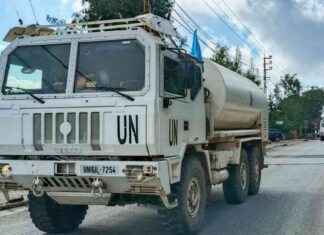the Trial is political sensitive, not least because the failure of the coup attempt – which took place on the eve of a parliamentary election and a decision on the membership of the US-led alliance joined – was full of Russian fingerprints.
Authorities in the capital, Podgorica, claimed that the coup was an attempt by the Serbian högernationalister that with Russian support prevent Montenegro from joining Nato, by a murder of prime minister Milo Djukanovic, the country’s longtime strongman.
President Milo Djukanovic. Photo: AP
the Sentence should have been to liquidate Djukanovic, the pro-Russian opposition parties in the government and thus stop the Natoanslutningen. It failed. Djukanovic won the election and just over six months after the coup attempt – in June 2017 – Montenegro became the 29th member of the alliance joined.
to stop the accession of Montenegro to the operation to the west, towards Nato and the EU, was no secret. Moscow had long campaigned for the use of Montenegro’s ports for refueling and repairs of military vessels, which are used in operations in Syria. In the small Balkanstaten had Moscow last opportunity to acquire a maritime foothold in the Adriatic sea, but the chance disappeared now definitely.
Two of the coup’s suspected organizers, Eduard Sjisjmakov and Vladimir Popov, is officially identified as officers in the GRU, the Russian military intelligence service. After the coup attempt, they managed to flee the country, first to Serbia and then to Russia, and therefore has been charged in their absence. Both the Russian agents were previously stationed in Warsaw; Sjisjmakov as the assistant attache for sweden, and he was expelled from Poland in 2014 after being accused of espionage.
was that it turned out that several of the 20 kuppmisstänkta the serbs and the montenegrinerna, who was arrested earlier had been fighting on the Russian separatists in the war in eastern Ukraine. Two of the suspects, the opposition pro-Russian politicians Andrija Mandic and Milan Knezevic, stripped of his parliamentary immunity.
the Summer of 2018 claimed the investigators in Podgorica that much more was involved in the plot: About 50 Russian GRU agents have entered Montenegro from Serbia during the night to the planned kuppdagen.
According to the prosecutor planned politically to dress up in police uniforms, storm the parliament building in Podgorica, and then shoot the prime minister.
the allegations of Russian involvement in the coup attempt. According to Vladimir Putin’s spokesman Dmitry Peskov were the accusations unfounded and absurd:
“We do not interfere in other countries’ internal affairs, including Montenegro.
It did not rule out the firm Russian rejection of Montenegro’s plans to join Nato. The Russian ministry of foreign affairs declared that it stood ”in contrast to the country’s fundamental interests and harm the stability in the Balkans and Europe as a whole”.
Russia’s then deputy prime minister Dmitry Rogozin warned that the former yugoslav republic would ”repent” if it joined the alliance joined.
Sergei Lavrov, the Russian foreign minister, described the Natoanslutningen as ”a purely geopolitical project imposed on the country, in a russofobiskt känsloläge”:
” the Situation in Ukraine was used as a pretext to consolidate Nato, then once again speculated in a Russian threat, so you could implement a so far not seen the buildup of the alliance’s military and technical presence at Russia’s borders.
rejected kuppanklagelserna as a pure invention. They called the alleged plot a ”false flag”operation by the authorities, where the purpose was to increase support for Milo Djukanovic socialistparti.
People protest against corruption in the british police. Photo: Risto Bozovic
british police have long been criticized for widespread corruption, and this spring has large anti-government demonstrations occurred in Podgorica. According to the opposition has Djukanovic, an ex-communist who has dominated Montenegrin politics for 30 years and was elected president in april 2018, used his position to enrich himself.








